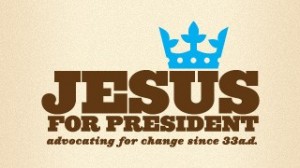 Below is the first message in our three week series entitled Schooled, looking at the Old Testament book of Jonah. I have also included the discussion questions that we used to guide our conversation following the message.
Below is the first message in our three week series entitled Schooled, looking at the Old Testament book of Jonah. I have also included the discussion questions that we used to guide our conversation following the message.
Today we are starting a new series at Veritas entitled “Schooled”. In Schooled, we will be taking the next 3 weeks to look at the Old Testament book of Jonah and what it can say to us today. Throughout the 3 weeks we will be seeking to take the story out of the realm of Children’s Bible story books and into the realm that it should be, a deeply challenging, convicting, subversive, and radical call to those who would follow after the God of love, grace, and mercy.
I won’t be spending any time talking about whether this story is a true story or a parable. Whether it truly happened or is a story told for a point. I won’t get into try to defend or disprove whether Jonah was actually swallowed by a great fish, lived inside the fish for 3 days, and then vomited back up on land. I’m going to take the book as a story with an amazingly deep and challenging message for anyone who has or will read this story. You can argue if you want whether the story is true or a parable. I’m going to just look at the message that I believe God wants each of us to take away from this book and apply it to our lives. And if we apply it to our lives, I believe we will look more and more like the God of love, grace, compassion, and mercy that is described within its pages, and that in turn our communities will be flooded with radical followers of Jesus who want to, what Jeremiah 29:7 says, “seek the peace and the prosperity of the city.”
So let’s turn to Jonah chapter 1 and see what we might get out of this text that was written so long ago, but has some very relevant things to say to us gathered together in the 21st century.
The word of the LORD came to Jonah son of Amittai: “Go to the great city of Nineveh and preach against it, because its wickedness has come up before me.” But Jonah ran away from the LORD and headed for Tarshish. He went down to Joppa, where he found a ship bound for that port. After paying the fare, he went aboard and sailed for Tarshish to flee from the LORD. Then the LORD sent a great wind on the sea, and such a violent storm arose that the ship threatened to break up. All the sailors were afraid and each cried out to his own god. And they threw the cargo into the sea to lighten the ship. But Jonah had gone below deck, where he lay down and fell into a deep sleep. The captain went to him and said, “How can you sleep? Get up and call on your god! Maybe he will take notice of us so that we will not perish.” Then the sailors said to each other, “Come, let us cast lots to find out who is responsible for this calamity.” They cast lots and the lot fell on Jonah. So they asked him, “Tell us, who is responsible for making all this trouble for us? What kind of work do you do? Where do you come from? What is your country? From what people are you?” He answered, “I am a Hebrew and I worship the LORD, the God of heaven, who made the sea and the dry land.” This terrified them and they asked, “What have you done?” (They knew he was running away from the LORD, because he had already told them so.) The sea was getting rougher and rougher. So they asked him, “What should we do to you to make the sea calm down for us?” “Pick me up and throw me into the sea,” he replied, “and it will become calm. I know that it is my fault that this great storm has come upon you.” Instead, the men did their best to row back to land. But they could not, for the sea grew even wilder than before. Then they cried out to the LORD, “Please, LORD, do not let us die for taking this man’s life. Do not hold us accountable for killing an innocent man, for you, LORD, have done as you pleased.” Then they took Jonah and threw him overboard, and the raging sea grew calm. At this the men greatly feared the LORD, and they offered a sacrifice to the LORD and made vows to him. Now the LORD provided a huge fish to swallow Jonah, and Jonah was in the belly of the fish three days and three nights.”
So the first thing we see in this first chapter of Jonah is God’s calling of Jonah to be a missionary to the people of the great city of Ninevah, which was the capital city of Assyria. Jonah represents the people of God called out from other nations to be a channel of God’s redemptive purposes. Now Ninevah was not a city of Israel and God was calling Jonah to go to a pagan, Gentile city and call them to repentance. As if God calling Jonah to go to a pagan, gentile city wasn’t bad enough, it was worse because the Assyrians were responsible for a number of Israel’s greatest disasters. God chose Ninevah to be an object of His mercy, because its inhabitants were more hated by the Israelites than people of any other city. You see the hatred of the Assyrians and by definition Ninevah comes from several places. First of all, as I just mentioned it was a pagan and Gentile city, of which good Jewish people should have almost nothing to do with, according to the OT law. Secondly, Ninevah was known for violence, plotting evil against the Lord, cruelty and plundering in war, prostitution, witchcraft, and commercial exploitation. Look at Nahum 3:1-4 to get a feel of the evil within Ninevah, “Woe to the city of blood, full of lies, full of plunder, never without victims! The crack of whips, the clatter of wheels, galloping horses and jolting chariots! Charging cavalry, flashing swords and glittering spears! Many casualties, piles of dead, bodies without number, people stumbling over the corpses— all because of the wanton lust of a prostitute, alluring, the mistress of sorceries, who enslaved nations by her prostitution and peoples by her witchcraft.” Lastly, in the years following the exile of Israel out of their land to Babylon, there grew up in Israel a spirit of bitterness and vengefulness towards other lands. The nation had endured so much at the hands of enemies that there was little inclination to keep alive the vision of Israel as God’s servant through whom redemptive truth would one day reach all nations. The most passionate desire wasn’t for the redemption of all nations but for God’s wrath to utterly consume all if Israel’s enemies.
And so here God was calling his prophet Jonah to go to the very enemy of Israel preach to it, be a missionary to it and Jonah has a choice. Does he go, knowing that God is a God of compassion and mercy and if the Ninevites repent that destruction won’t come. Or does he disobey God and his calling as a missionary, and also the call to reawaken a nation to their missionary call to be a blessing to all nations, that they were called to all the way back in Genesis 12? Does he go the other way hoping that the Assyrians will be judged, condemned and destroyed? We find out his choice in verse 3 when it says, “But Jonah ran away from the LORD and headed for Tarshish.” So the 2 questions that I immediately think of is: 1. Does he really think he can run away from God? And 2. Why and where is Tarshish? Well the first question I believe points us to the thought at the time, not so much from the Jewish perspective, but from other belief systems, that there were gods of various areas, and once you left a certain area, you could leave the god of that area behind. So maybe Jonah was trying to get away from God by leaving Israel, which we know was futile. But more than that, I believe the presence of God is intolerable to Jonah because it demanded of him the renunciation of his prejudices and his lust for divine vengeance upon Israel’s enemies. That I believe was the real reason behind Jonah’s running. He didn’t want to face up to the reality of his vengeful spirit and his hope for God’s wrath and judgment to be poured out on his people’s enemy. The second question I think is directly related to the first, in that Jonah thought, where is the farthest place I can go, to get away from God’s call on my life, and God’s desire to redeem these people. So he thought Tarsish, a city most likely to be identified with the Greek Tarteses in the south of Spain. It was as far west as ships were likely to sail from Palestine, and some thought it was almost at the end of the earth. Ninevah was east of Palestine and Tarsish was as far west as you could go, at the time. So he gets on board and ship heading to Tarsish and runs into trouble. The one thing that I find very interesting in this part of Jonah chapter 1 can be found in verses 11-13, “The sea was getting rougher and rougher. So they asked him, “What should we do to you to make the sea calm down for us?” “Pick me up and throw me into the sea,” he replied, “and it will become calm. I know that it is my fault that this great storm has come upon you.” Jonah was willing to give up his life to save Gentile sailors, but couldn’t bear the thought that God should save Gentiles in Ninevah. Jonah’s readiness to die to save the sailors contrasts with his later callous departure from Ninevah to watch while the city perish, or so he hoped. To Jonah, and to the Israelites, it was harder to hate individuals than it was to hate groups of people. And it was harder to hate these gentile sailors when he was in relationship with them, knew their names, and were face to face with them. For Jonah, it was by far easier to condemn and hate a group of people who were not in relationship with him, that he didn’t know and never were face to face with. And so the last thing we see in this chapter is when Jonah is thrown into the sea, and the Lord provides a great fish to swallow Jonah, and that Jonah was inside the fish for three days and three nights. And so know we turn to our time of discussion and application. The time where we can unpack the text into our local context and what God is saying to each of us about living this reality out in our neighborhoods, workplace, school, families, and communities. So let’s unpack this together and see what God might be leading each of us as individuals and as a community to.
Discussion Questions: 1. What thoughts, comments, insights, questions, pushback, etc... do you have regarding the Scripture and/or the message? 2. Who does Ninevah represent to you? Are you running away from them (and by definition away from God as well)? 3. Who is God calling you to be on mission with and on mission for? 4. What is God saying to you and what are you going to do about it? What is God saying to us and what should we do about it?






